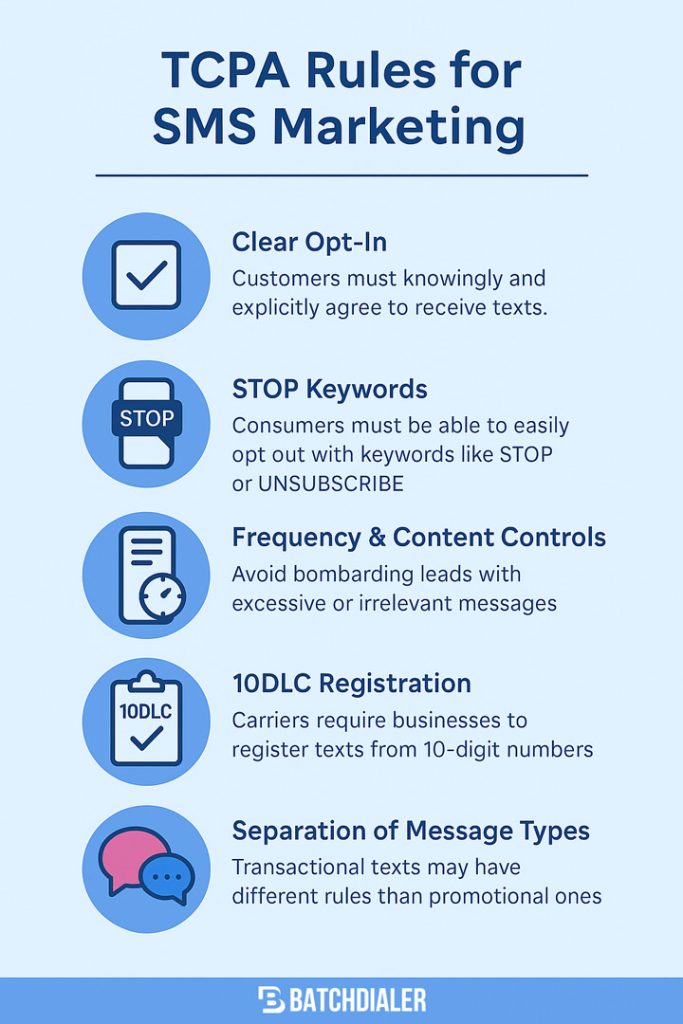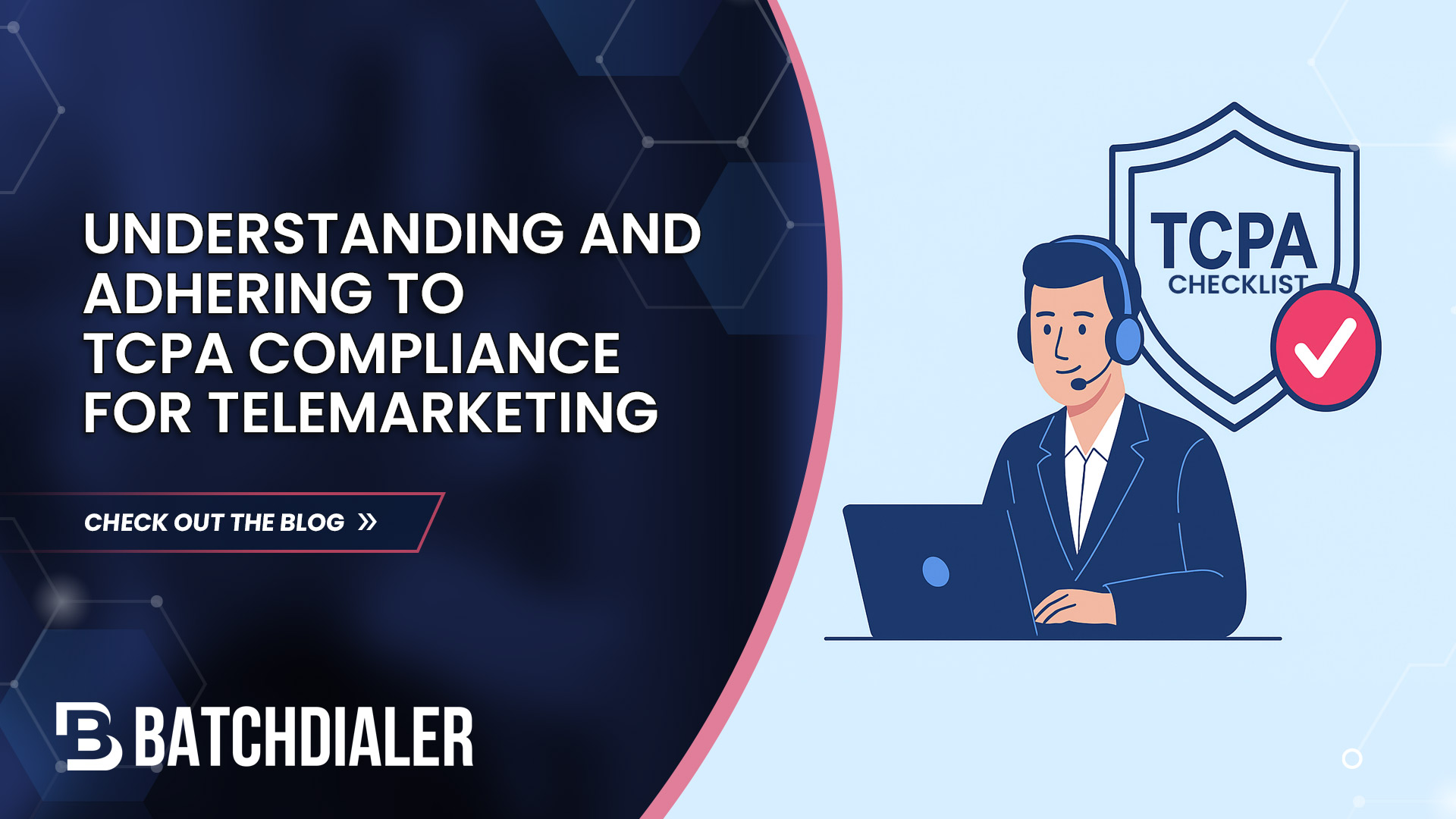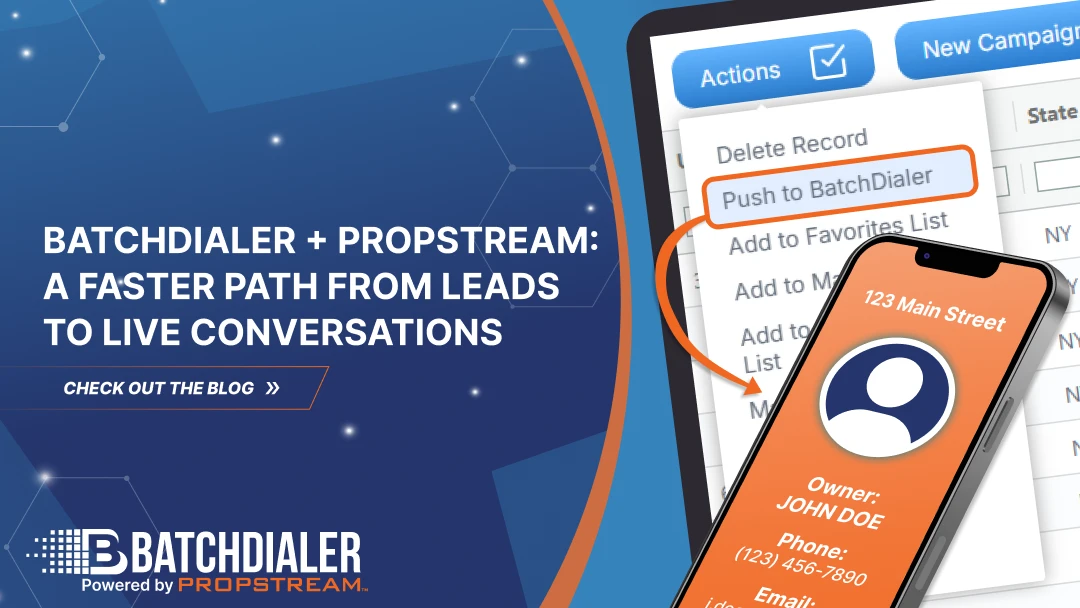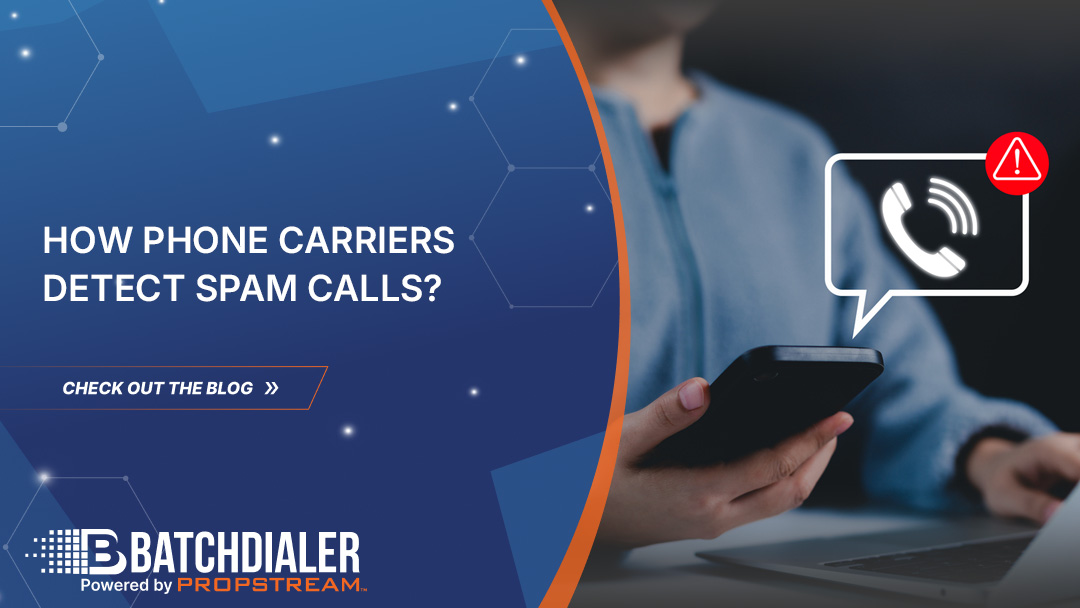Disclaimer: This article is for informational purposes only and does not constitute legal advice. For up-to-date guidance on TCPA compliance, consult a qualified legal professional and review official FCC resources.
Key Takeaways:
- Telemarketing still drives growth, but one wrong step in compliance can cost thousands per call or text.
- The rules around calls and SMS are tightening in 2025–2026, and businesses that don’t adapt risk fines, blocked campaigns, and lost trust.
- With the right checklist and compliance-first dialer software, you can protect your outreach, build credibility, and connect with more customers confidently.
Telemarketing remains one of the most effective ways to build customer relationships and drive business growth, whether it’s through live conversations, predictive dialers, or SMS campaigns. However, with great outreach comes great responsibility. In the United States, the Telephone Consumer Protection Act (TCPA) sets the standard for how businesses can legally and ethically engage with consumers.
For sales teams, call center managers, and business owners, TCPA compliance isn’t just about avoiding fines but preserving trust and protecting your brand. Violations can cost anywhere from $500 to $1,500 per call or text, with class-action lawsuits reaching millions. Beyond financial penalties, non-compliance can erode consumer confidence and tarnish a company’s reputation.
In the latter half of 2025, with rising consumer awareness around data privacy and stricter enforcement by regulators, staying compliant with regulations is more critical than ever. In this guide, we’ll break down what TCPA compliance means, why it matters for your business, and practical steps in the form of checklists to compliance-focused software that can help safeguard your outreach strategy.
What Is TCPA Compliance?
The Telephone Consumer Protection Act (TCPA) is a federal law that sets clear rules for how businesses can connect with people by phone, text, or fax. Rather than limiting opportunities, these rules are designed to create fair, respectful communication and protect consumers and businesses.
For business owners, TCPA compliance simply means having the right process in place: getting permission before you reach out, being upfront about who you are, and honoring opt-outs promptly.
The good news is, you don’t have to manage this alone. A trusted call center software can automate compliance tasks like scrubbing against DNC (Do Not Call) lists, tracking consent, and managing call times so you can focus on conversations, not regulations. TCPA compliance builds trust, keeps your brand safe, and allows you to scale outreach confidently.
For a definitive, official reference on the rules we discuss, check out the FCC’s full TCPA regulations in this PDF.
Key TCPA Requirements for Telemarketing
To keep your outreach compliant, here’s a breakdown of the key TCPA requirements every telemarketing campaign should follow.
| TCPA Requirement | What It Means |
| Prior Express Written Consent | Businesses must obtain documented, clear, and unambiguous permission before making marketing calls or sending texts. |
| Do Not Call (DNC) Compliance | Telemarketers must scrub call lists against the National DNC Registry and maintain an internal “do not call” list. |
| Calling Time Restrictions | Calls may only be placed between 8 a.m. and 9 p.m. in the recipient’s local time zone. |
| Auto-Dialer Restrictions | Use of automated dialing systems or prerecorded voice messages without prior consent is prohibited. |
| Opt-Out Mechanisms | Every call, voicemail, or text must provide a clear opt-out option, and requests must be honored immediately. |
| Caller Identification Requirements | Caller ID must display accurate information, including a valid phone number and business name. Adoption of the STIR/SHAKEN protocol helps verify calls and prevent spam labeling. |
In addition to the above, full TCPA compliance relies on strong internal practices. Businesses should maintain detailed records of consent, call histories, and opt-outs; ensure staff are adequately trained on what they can and cannot say; conduct regular audits to keep policies current; and use dialer systems that automatically screen DNC lists and enforce calling time restrictions. Ultimately, compliance is about weaving legal awareness, process, and technology into every layer of outreach.
Related: Telemarketing Best Practices for Maximum Success
What Are the TCPA Rules for SMS Marketing?
SMS was once the preferred channel for quick customer outreach thanks to its near-instant open rates.
However, over time, stricter TCPA regulations and carrier requirements caused many industries, including real estate, to step back from text messaging, even though it often performs better than cold calling. The good news is, with the proper compliance measures in place, SMS can still be a safe and highly effective part of your outreach strategy.
To stay compliant, every SMS campaign must follow these basic rules:

- Clear Opt-In: Customers must knowingly and explicitly agree to receive texts. Written or double opt-in methods are the safest approach.
- STOP Keywords: Consumers must be able to easily opt out with keywords like STOP or UNSUBSCRIBE, and their requests must be honored immediately.
- Frequency & Content Controls: Avoid bombarding leads with excessive or irrelevant messages. TCPA rules require businesses to respect consumer preferences.
- 10DLC Registration: Carriers now require businesses sending texts from 10-digit numbers to register under the 10DLC system. Registration verifies your brand, improves deliverability, and helps prevent your texts from being filtered or blocked. Without it, even compliant messages may never reach the consumer.
- Separation of Message Types: Transactional texts (like appointment reminders) may be subject to different rules than promotional ones, but proof of consent is still critical.
For a deeper dive into A2P 10DLC requirements, check out Twilio’s official compliance guide.
What Are the Penalties for a TCPA Violation?
Let’s get straight to the point: ignoring TCPA rules is costly.
Businesses face $500 per violation for mistakes and up to $1,500 per violation if they are willful. For call centers dialing at scale, that can escalate into millions of dollars fast. Beyond fines, the real damage often comes from class-action lawsuits and the loss of consumer trust, the kind of hit that can take years to recover from.
Penalties can include:
- Statutory fines of $500–$1,500 per call or text
- Class-action lawsuits that multiply costs quickly
- Regulatory investigations that drain time and resources
- Reputational harm, leading to lost trust and reduced conversions
- Operational setbacks, such as restrictions on dialing practices
While understanding and complying with TCPA regulations can take time and effort, in the end, the investment is worth it when compared to the potential cost of committing multiple violations. With the right systems in place, businesses can protect both their outreach and their reputation.
Protect Your Business by Choosing the Right Dialing Software
The dialer you choose should do more than connect calls; it should protect your business. Look for tools that handle DNC scrubbing, consent tracking, caller ID accuracy, and compliance reporting.
BatchDialer is designed with all these essentials, giving businesses a reliable way to scale outreach without running into compliance roadblocks. Beyond the basics, BatchDialer is designed with compliance-first features that simplify regulations and protect your outreach. Instead of worrying about fines or violations, your team can focus on what matters most: having productive conversations. Here’s how it helps:
Consent Management Made Simple
- Streamlined tools to capture, track, and store consumer consent.
- Automated opt-in and opt-out mechanisms to ensure customer preferences are respected.
Built-In TCPA-Compliant Features
- Manual Dialing Mode: Give agents the ability to dial manually when needed, reducing reliance on automation.
- DNC Scrubbing Tools: Automatically remove contacts on the National Do Not Call Registry.
- Detailed Call Logs: Maintain an audit trail for every call, voicemail, and text.
Protect Your Number Reputation
- Caller ID Reputation Tool & Free Spam Checker: Quickly identify if your number has been mislabeled and take corrective action before it impacts your outreach.
- Support for STIR/SHAKEN standards to help ensure your calls show up as verified and trustworthy.
Training and Education
- Regular webinars, compliance updates, and resources to keep teams informed of regulatory changes and industry best practices.
Below is a quick demo on Getting started with the Industry’s Top Rated Dialer

Staying Ahead of TCPA and Telecom Fraud Regulations in 2026
As we move into 2026, compliance is no longer just about avoiding TCPA fines; it’s about navigating an increasingly strict telecom environment where fraud prevention and trust are just as important as outreach efficiency. Regulators and carriers are tightening enforcement on everything from robocalls to text deliverability, making it critical for businesses to stay proactive.
Here’s what’s shaping the tele-marketing landscape in 2026:
- Stricter TCPA Enforcement: Expect heavier penalties for repeat violators, as regulators prioritize consumer privacy and reduce unwanted calls.
- Expanded STIR/SHAKEN Coverage: Authentication standards continue to roll out, giving verified businesses a trust advantage while exposing fraudulent traffic faster.
- Mandatory 10DLC for A2P Messaging: All business SMS campaigns must be registered through The Campaign Registry, with unregistered traffic now at high risk of blocking or fines.
- AI-Driven Call Filtering: Carriers are increasingly using AI to flag suspicious traffic patterns, making reputation monitoring more critical than ever.
- State-Level “Mini-TCPA” Laws: More states are expected to introduce local variations of TCPA, adding another compliance layer businesses must track.
The future of telemarketing isn’t just about dialing faster but about dialing smarter. With regulations tightening, fraud on the rise, and consumer trust at stake, businesses that stay proactive will thrive in 2026 and beyond. Compliance isn’t a burden; it’s an opportunity to build credibility, protect your reputation, and connect with prospects in a lasting way.
Don’t leave compliance to chance. Equip your team with BatchDialer and stay one step ahead of TCPA and telecom fraud regulations.
[Start your 7 Day Free Trial today].
FAQs on TCPA Compliance
1. What does TCPA compliance mean for telemarketing?
TCPA compliance means following the rules set by the Telephone Consumer Protection Act (TCPA) when contacting consumers by phone, text, or fax. For telemarketers, this includes obtaining prior express written consent, respecting the Do Not Call (DNC) Registry, honoring opt-out requests, and only calling within permitted hours.
2. What are the penalties for violating TCPA rules?
Violating TCPA rules can result in fines of $500 per call or text for unintentional violations and up to $1,500 per call or text for willful ones. In large-scale operations, this can lead to multimillion-dollar class-action lawsuits, regulatory investigations, and long-term reputational harm.
3. How can businesses ensure SMS campaigns are TCPA compliant?
To keep SMS marketing compliant, businesses must obtain clear opt-in consent, provide an easy opt-out method (like STOP), avoid excessive messaging, and register under the 10DLC system for better deliverability. Separating promotional and transactional texts and storing proof of consent are also best practices.
4. What are the legal hours for making telemarketing calls in the U.S.?
Businesses can only contact consumers between 8 a.m. and 9 p.m. local time. Calling outside these hours is considered a violation of federal regulations.
5. What new challenges should telemarketers prepare for in 2026?
Telemarketers should expect stricter federal enforcement, mandatory 10DLC registration for SMS, expanded STIR/SHAKEN caller ID authentication, and the rise of AI-driven call filtering by carriers. Some states are also introducing their own “mini” telemarketing laws, which means nationwide campaigns must track both federal and state-level requirements.



